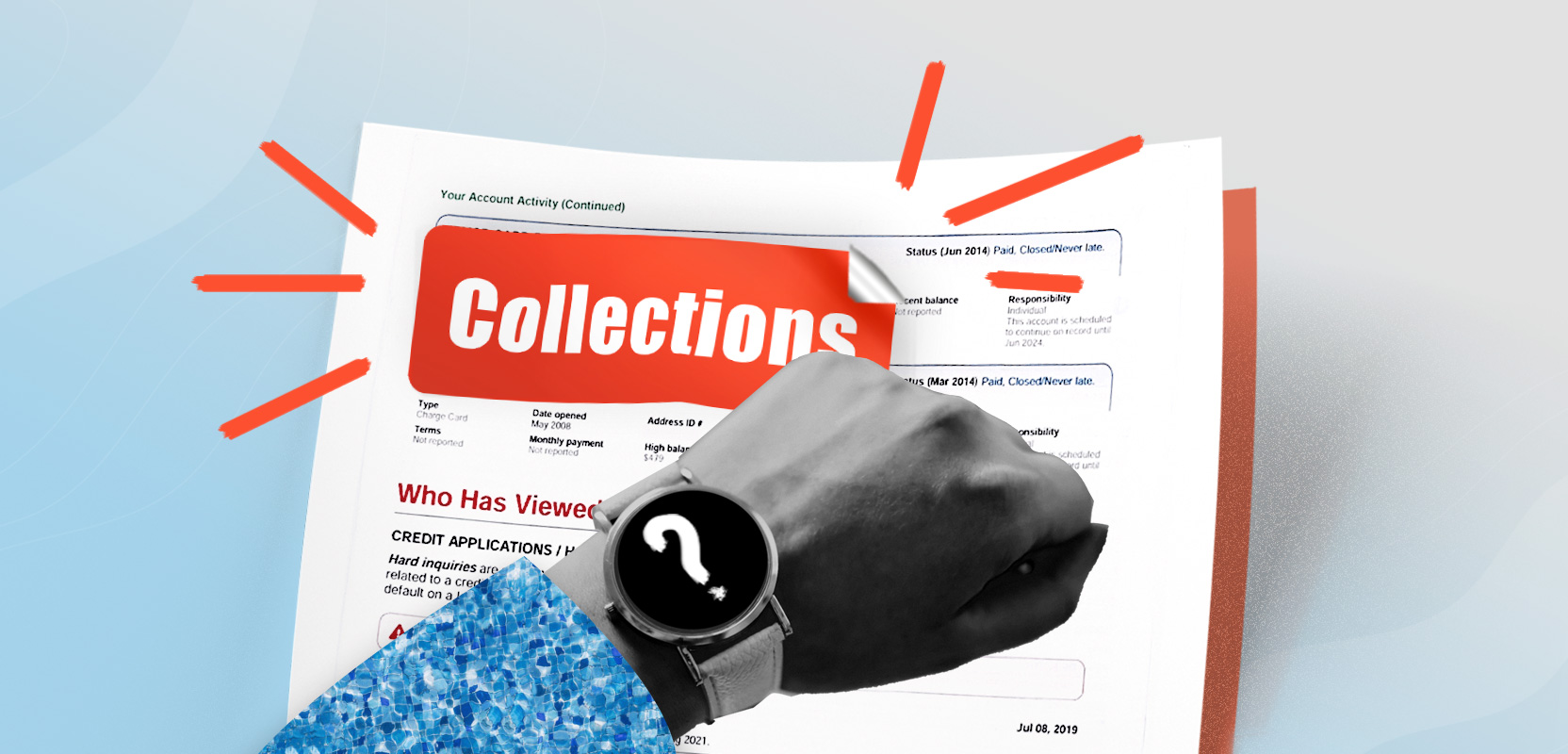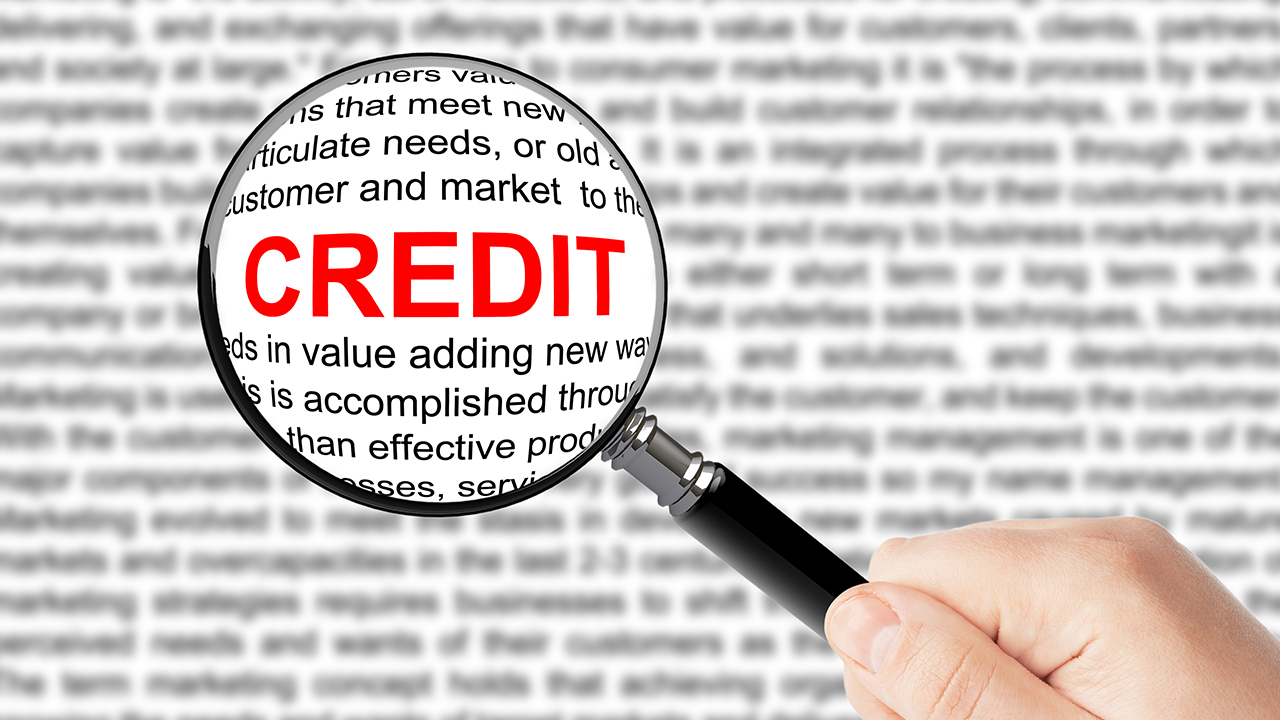Home>Finance>How Long Before Collection Agency Reports To Credit Bureau


Finance
How Long Before Collection Agency Reports To Credit Bureau
Published: January 11, 2024
Find out how long it takes for a collection agency to report to the credit bureau in relation to your finances
(Many of the links in this article redirect to a specific reviewed product. Your purchase of these products through affiliate links helps to generate commission for LiveWell, at no extra cost. Learn more)
Table of Contents
- Introduction
- Understanding Collection Agencies
- The Impact of Collection Agencies on Credit Reports
- Factors Affecting Reporting Duration
- Typical Timeline for Collection Agency Reporting
- Consequences of Collection Agency Reporting
- How to Handle Collection Accounts on Credit Reports
- Tips for Avoiding Collection Agency Reporting
- Conclusion
Introduction
Dealing with financial challenges can be overwhelming, and one of the consequences of falling behind on payments is the potential involvement of a collection agency. Collection agencies are hired by creditors to recover overdue debts from individuals who have failed to make payments on time. These agencies play a critical role in the debt collection process, but their actions can also have a significant impact on an individual’s credit report.
Understanding how collection agencies report to credit bureaus is essential for anyone who wants to maintain a healthy credit history and avoid negative marks on their credit report. This article will shed light on the timeline and factors affecting collection agency reporting, as well as the consequences of their actions. Additionally, we’ll discuss strategies for handling collection accounts on credit reports and provide tips for avoiding collection agency involvement altogether.
Whether you’ve recently incurred collection accounts or simply want to be prepared in case of future financial difficulties, gaining a clear understanding of how collection agency reporting works can help you make informed decisions and take proactive steps to protect your creditworthiness.
Understanding Collection Agencies
Collection agencies are businesses that are contracted by creditors to collect outstanding debts from individuals who have failed to make timely payments. These agencies specialize in pursuing delinquent accounts on behalf of the original creditor, allowing the creditor to focus on their primary business operations.
Collection agencies operate under specific guidelines and regulations set by both federal and state laws. These regulations are in place to protect consumers from unfair or abusive debt collection practices. It’s important to note that while collection agencies may have the authority to contact individuals and demand payment, they cannot engage in harassment, threaten legal action they cannot take, or use deceptive tactics.
Collection agencies typically work on a contingency basis, meaning they only get paid if they successfully collect the debt. In exchange, they receive a percentage of the amount they recover, which motivates them to pursue debtors aggressively.
When a creditor decides to hand over an account to a collection agency, they transfer the legal right to collect the debt. At this point, the collection agency becomes the new owner of the debt and assumes the responsibility for collecting the amount owed.
It’s important to understand that collection agencies may also purchase debts from creditors at a fraction of the original amount due. In these cases, the agency becomes the rightful owner of the debt and has the authority to collect the full amount. However, in some instances, debts may be sold multiple times, leading to confusion and potential legal challenges.
Dealing with collection agencies can be stressful and intimidating, but it’s essential to know your rights and responsibilities as a debtor. Understanding the role and operations of collection agencies will help you navigate the debt collection process more effectively and protect yourself from unfair practices.
The Impact of Collection Agencies on Credit Reports
Collection agencies can have a significant impact on an individual’s credit report. When an account is handed over to a collection agency, it is typically reported to the credit bureaus, which then include the collection account on the individual’s credit report. This is where the negative consequences start to unfold.
A collection account on a credit report is a red flag to lenders and creditors. It indicates that the individual has defaulted on a debt and has been unable to resolve it through normal channels. This can severely impact the individual’s creditworthiness and make it challenging to obtain credit in the future.
The presence of a collection account on a credit report can lower an individual’s credit score significantly. A lower credit score indicates a higher risk to lenders, resulting in higher interest rates, limited access to credit, and increased difficulty in obtaining loans, mortgages, or credit cards.
Furthermore, the negative impact of a collection account can persist on a credit report for up to seven years from the date of the original delinquency. This means that even after resolving the debt or paying off the collection account, the negative mark can remain on the credit report for an extended period of time, affecting the individual’s creditworthiness and financial opportunities.
It’s important to note that not all collection agencies report to credit bureaus immediately. The timeline for reporting can vary depending on various factors, including the agency’s policies, the age of the debt, and the amount owed. However, it’s wise to assume that a collection account will eventually be reported and take necessary steps to address the situation.
Having a collection account on a credit report can also hinder other areas of an individual’s financial life. It can impact their ability to secure housing, obtain insurance, or even secure employment. Many employers review credit reports as part of their hiring process, and a negative mark like a collection account can raise concerns about an individual’s financial responsibility.
Overall, the impact of collection agencies on credit reports is significant and can have long-lasting consequences. It’s crucial for individuals to address collection accounts promptly and take steps to minimize their negative impact on their creditworthiness.
Factors Affecting Reporting Duration
The length of time it takes for a collection agency to report a debt to the credit bureaus can vary based on several factors. Understanding these factors can give individuals an idea of when they may expect to see the collection account on their credit report.
1. Agency Policies: Each collection agency has its own policies and procedures for reporting debts to credit bureaus. Some agencies may report accounts immediately upon acquisition, while others may wait for a certain period before reporting. It’s essential to inquire about the agency’s reporting practices if you are dealing with delinquent debts.
2. Debt Age: The age of the debt can also influence the reporting duration. Older debts may take longer to appear on a credit report since the agency may focus on more recent and active accounts. However, it’s important to note that there is no set timeframe for when a debt is considered “old.” It can vary based on the agency’s internal policies.
3. Debt Amount: The amount owed can also impact when a debt is reported to the credit bureaus. Smaller debts may not be prioritized for immediate reporting, while larger debts could prompt faster action from the collection agency.
4. Contractual Agreements: Collection agencies work under agreements with the original creditors. These agreements may outline specific reporting timelines and requirements. If there are contractual obligations to report debts within a certain timeframe, the agency is more likely to adhere to those guidelines.
5. Resolution Attempts: If the debtor is actively working to resolve the debt, such as setting up a payment plan or negotiating a settlement, the collection agency may delay reporting to give the debtor an opportunity to fulfill their obligations. In these cases, the agency may hold off on reporting until there is a resolution or a significant period of non-payment.
While these factors can provide some insight into the reporting duration, it’s important to remember that every situation is unique, and there may be additional considerations not listed here. It’s always best to communicate directly with the collection agency to understand their specific reporting practices and timeline.
Typical Timeline for Collection Agency Reporting
The timeline for when a collection agency reports a debt to the credit bureaus can vary based on several factors. While there is no definitive timeframe, understanding the typical timeline for collection agency reporting can provide individuals with a general idea of when they may expect to see the collection account on their credit report.
1. 30-60 Days: In most cases, collection agencies will start their collection efforts shortly after the account becomes delinquent. This may involve sending letters, making phone calls, or attempting to establish contact with the debtor. However, during this initial stage, the debt is typically not yet reported to the credit bureaus.
2. 90-120 Days: If the debtor has not responded or made any efforts to resolve the debt within the first few months, the collection agency may escalate their collection efforts. This may involve more frequent and more aggressive contact methods. At this stage, the collection agency may consider reporting the debt to the credit bureaus.
3. 4-6 Months: If the debtor has not made any attempts to resolve the debt, the collection agency is more likely to report the account to the credit bureaus. This typically happens within four to six months from the date of the original delinquency. Once reported, the collection account will appear on the individual’s credit report, negatively impacting their credit score.
It’s important to note that these timeframes are not set in stone and can vary depending on factors such as agency policies, debt amount, and the debtor’s response. Some collection agencies may report debts sooner, while others may take longer before taking this step.
Additionally, it’s worth mentioning that if a debt is disputed by the debtor, the collection agency may temporarily suspend reporting until the dispute is resolved. This allows for a fair investigation and resolution of any discrepancies related to the debt.
Overall, individuals should be prepared for the possibility of a collection account appearing on their credit report within four to six months from the date of delinquency. However, proactive steps can be taken to address the debt and mitigate the negative impact on the credit report.
Consequences of Collection Agency Reporting
When a collection agency reports a debt to the credit bureaus, it can have significant consequences for individuals. Understanding these consequences can help debtors navigate the debt collection process more effectively and take proactive steps to protect their creditworthiness.
1. Negative Impact on Credit Score: One of the most significant consequences of collection agency reporting is the negative impact on an individual’s credit score. A collection account on a credit report indicates that the debtor has failed to fulfill their financial obligations, resulting in a lower credit score. This can make it more challenging to obtain credit and may lead to higher interest rates on loans and credit cards.
2. Difficulty Obtaining New Credit: A collection account on a credit report can make it difficult to obtain new credit. Lenders and creditors view collection accounts as a red flag, indicating a higher risk borrower. As a result, individuals with collection accounts may struggle to secure loans, credit cards, or mortgages. If approved, they may face limited credit options or higher interest rates.
3. Affected Financial Opportunities: Having a collection account on a credit report can impact various financial opportunities. It can hinder individuals’ ability to secure housing, as landlords often check credit reports during the rental application process. Insurance companies may also consider credit scores when determining rates, potentially leading to higher premiums. Additionally, some employers may review credit reports as part of the hiring process, potentially affecting job prospects.
4. Potential Legal Actions: In some cases, if individuals fail to address their debts and work towards a resolution, collection agencies may pursue legal actions. This can result in lawsuits and potential wage garnishments if the court rules in favor of the collection agency. Legal actions can further damage an individual’s financial standing and can lead to additional financial stress and strain.
5. Long-term Impact: The consequences of collection agency reporting can extend beyond the immediate timeframe. A collection account remains on a credit report for up to seven years from the date of the original delinquency, impacting creditworthiness and financial opportunities during this time. Even after resolving the debt, the negative mark can continue to hinder creditworthiness until it is removed from the credit report.
Given these consequences, it is important for individuals to address collection accounts promptly and work towards resolving the outstanding debts to minimize their impact on creditworthiness and financial stability.
How to Handle Collection Accounts on Credit Reports
Dealing with collection accounts on credit reports can be daunting, but taking the right steps can help individuals navigate the process and mitigate the negative impact on their creditworthiness. Here are some strategies to effectively handle collection accounts:
1. Review Your Credit Report: Start by obtaining a copy of your credit report from each of the major credit bureaus. Carefully review the information to identify any collection accounts that have been reported. Ensure that the information is accurate and up-to-date.
2. Verify the Debt: Once you identify a collection account, request verification of the debt from the collection agency. Under the Fair Debt Collection Practices Act (FDCPA), you have the right to request proof that the debt is indeed yours and that the collection agency has the legal authority to collect it.
3. Negotiate a Settlement: If the debt is verified, consider negotiating a settlement with the collection agency. In some cases, they may be willing to accept a reduced amount as full payment. Get any settlement agreement in writing, and make sure it states that the collection account will be marked as “paid in full” or “settled” on your credit report.
4. Pay in Full: If you have the means to do so, paying the collection account in full can help improve your creditworthiness. Contact the collection agency and arrange for payment, ensuring that they provide documentation confirming the payment and updating your credit report accordingly.
5. Dispute Inaccurate Information: If you believe there are inaccuracies in how the collection account is being reported, such as incorrect dates or amounts, you have the right to dispute it with the credit bureaus. Submit a dispute letter, along with any supporting documentation, to request the removal or correction of the inaccurate information.
6. Rebuild Your Credit: After resolving a collection account, focus on rebuilding your credit. Make all future payments on time, keep credit card balances low, and avoid taking on excessive debt. Over time, positive credit habits will help improve your credit score and offset the negative impact of the collection account.
7. Seek Professional Guidance: If you’re unsure of how to handle collection accounts or need assistance, consider seeking guidance from a credit counseling agency or a reputable financial advisor. They can provide personalized advice and help you develop a plan to address your financial situation effectively.
Remember, addressing collection accounts requires patience and persistence. Stay proactive, maintain clear communication with the collection agency, and monitor your credit report regularly to track any changes or improvements.
Tips for Avoiding Collection Agency Reporting
Avoiding collection agency involvement altogether is the best way to prevent the negative consequences that come with it. Here are some effective tips to help individuals avoid collection agency reporting:
1. Manage Your Finances Wisely: Establish a budget and stick to it. Regularly review your income, expenses, and debt payments to ensure you’re living within your means. Avoid overspending and prioritize timely bill payments.
2. Create an Emergency Fund: Set aside money in an emergency fund to cover unexpected expenses. Having financial reserves can help prevent falling behind on payments and accumulating debt.
3. Communicate with Creditors: If you’re facing financial difficulties and unable to make payments on time, communicate with your creditors proactively. Explain your situation honestly, and inquire about hardship programs or alternative payment arrangements they may offer.
4. Seek Financial Assistance: If you’re struggling to manage your debts, seek professional financial assistance. Credit counseling agencies can provide guidance on budgeting, debt management, and negotiating with creditors.
5. Avoid Taking on Unnecessary Debt: Be cautious about taking on new debt, especially if you’re already struggling to manage existing obligations. Consider whether the purchase is essential and whether you can comfortably afford the monthly payments.
6. Monitor Your Credit Report: Regularly monitor your credit report to identify any potential errors or discrepancies that could lead to collection accounts. Staying on top of your credit can help you address issues early and take appropriate action.
7. Protect Yourself from Identity Theft: Safeguard your personal and financial information to prevent identity theft. Regularly review your bank and credit card statements for any unauthorized charges, and report any suspicious activity immediately.
8. Read and Understand Contracts: Before entering into any financial agreements, thoroughly read and understand the terms and conditions. Clarify any doubts or seek legal advice if necessary to ensure you’re aware of your rights and obligations.
9. Stay Informed about Your Rights: Familiarize yourself with consumer protection laws, such as the Fair Debt Collection Practices Act (FDCPA), which outlines the rights and protections afforded to consumers in debt collection situations. Knowing your rights can help you recognize and address any violations by collection agencies.
10. Practice Good Financial Habits: Cultivate good financial habits, such as saving, budgeting, and responsible credit card use. By maintaining a strong financial foundation, you can minimize the risk of falling into delinquent payments and the need for collection agency involvement.
By implementing these tips, individuals can take proactive measures to avoid collection agency reporting and maintain their financial stability. It’s important to be mindful of your financial situation and take the necessary steps to stay on top of your debts.
Conclusion
Dealing with collection agencies and the potential reporting of debts to credit bureaus can be a source of stress and concern for many individuals. Understanding how collection agency reporting works and taking appropriate actions can help mitigate the negative consequences that come with it.
By reviewing your credit report regularly, you can stay informed about any collection accounts that may have been reported. Verify the debts, negotiate settlements if necessary, and strive to pay off the collection accounts to minimize their impact on your creditworthiness.
Taking steps to avoid collection agency reporting altogether is even more beneficial. Manage your finances wisely, communicate with your creditors, and seek financial assistance when needed. Being proactive and staying informed about your rights as a consumer can help you steer clear of collection accounts and maintain a healthy credit history.
Remember, the impact of collection agency reporting can extend beyond your credit score—it can affect your ability to secure new credit, obtain housing, or even find employment. Take charge of your financial health, protect yourself from identity theft, and practice good financial habits to avoid falling into collections in the first place.
While navigating the world of collection agencies and credit reporting can be overwhelming, it’s important to remain diligent and seek guidance when needed. By managing your debts responsibly and addressing any collection accounts promptly, you can work towards a brighter financial future and maintain your creditworthiness.
Take control of your financial journey, stay informed, and prioritize responsible financial habits to minimize the impact of collection agency reporting on your credit report and overall financial well-being.














